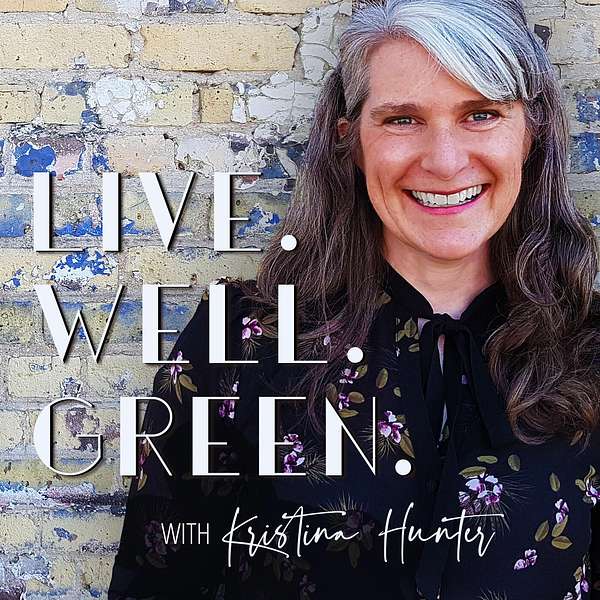
Live. Well. Green.
Live. Well. Green.
Episode 17: Naturalizing Your Yard or Balcony
Do you live in an urban area but love the idea of creating natural habitat to support native and migrating species? Or do you simply wish to see more birds and butterflies or want to do your part for conservation? Whatever your motivation, creating a naturalized yard or balcony has a myriad of advantages—not only for the plants and animals but also for you! Today on the podcast, I share everything you need to know about naturalizing your direct outdoor environment for the benefit of all life. I discuss the three principles of how to naturalize your yard or balcony, the pitfalls to avoid, and what to expect with a naturalized space. Joining in the conversation, listeners will also learn how to create a natural habitat, what they can do to promote the survival of the monarch butterfly, the difference between invasive and a non-native plant species, how pet owners can prevent their fur babies from hunting wildlife, why you want insects to stick around, and more!
Key Points From This Episode:
• The impact that naturalizing your yard or balcony has on our native species and biodiversity.
• Consider the enjoyment we humans gain from seeing more wildlife around our homes.
• Preserving natural species by creating and protecting habitat.
• Ensuring that your naturalized garden or balcony is congruent with your ecoregion.
• Evaluating the microclimate of your garden in terms of exposure to the sun, rain, wind, etc.
• The relevance of the milkweed plant for the survival of the monarch butterfly.
• Choosing native plants that support other species and are viable in the long-term.
• Suggestions for providing water and why running or circulating water is particularly useful.
• Reducing hazards to all life forms by avoiding the use of chemicals and plastics.
• What pet owners can do to prevent their animals from preying on wildlife around the home.
Key Messages:
1. Create a favorable habitat that will attract and accommodate wildlife.
2. Reduce hazards on your property.
3. Avoid planting or maintaining invasive species.
4. Go with the flow and enjoy the natural changes in your naturalized space.
5. Use these spaces to educate others.
Quotables:
“When we naturalize our yards and balconies, we can actually make a significant positive impact on native species.” — Kristina Hunter [0:01:49]
“The garden suggests there might be a place where we can meet nature halfway.” — Michael Pollan [0:02:31]
“Not only do domestic cats have an impact on native birds, keeping your cats inside and contained is healthier for them and they live longer. We want people to enjoy both our diverse and wonderful wildlife as well as their pet companions.” — Holly Parsons in The Guardian [0:28:43]
Links Mentioned in Today’s Episode:
The Guardian Article on Domestic Cats